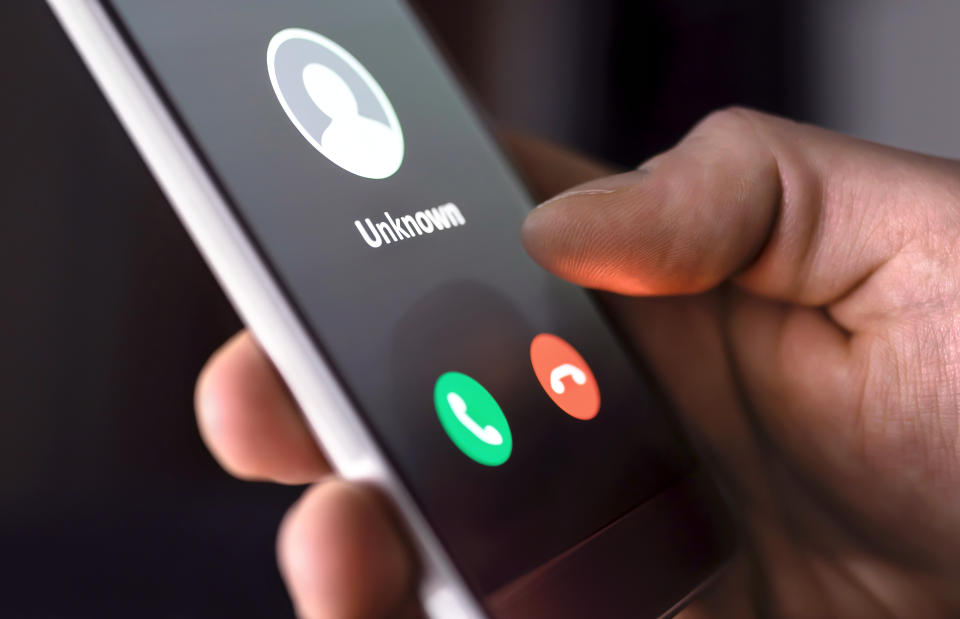Coronavirus phone scams are getting worse
Coronavirus scams emerged almost immediately after the outbreak grained strength in the U.S., using the moments of initial panic to target consumers with fake cruise scams and fake promises allowing them to “reserve” their place in the coronavirus testing queue by paying upfront.
Since then, the scams have continued – and evolved. And experts say they’ll continue to evolve to match the news and prey on people’s worries.
Transaction Network Services, a telecom data company that powers call screening and analytics for many big phone companies including Yahoo Finance’s parent company Verizon (VZ), has seen a surge in robocall scams and text scams.
“There’s a scam focused on the L.A. area where they’re presenting themselves as 3M saying this is a courtesy call from a safety program and due to the corona you get a free safety and medical kit, which is sold out,” said Bill Versen, TNS's chief product officer. “They did about 20,000 calls the other day that we were able to pick up.”

These scammers want your credit card or other personal information – it’s essentially a “take your money and run” scenario.
Scams are constantly changing
Another one TNS has been seeing pop up through its call monitoring: “Clean and sanitize your entire house for only $69.99.” Another scam involves iPhone 11 giveaways positioned as a tool to support all the people working from home. Yet another: free “Netflix Premium.”
“They try to make the story as credible as possible to get you to react to it,” Versen said.
The Netflix example came in the form of a robotext, trying to get consumers to click on a link that could lead to phishing or malware.
The company stays abreast of new scams by ensnaring scammers with honeypot numbers that “answer” the phone when robocallers dial, but also through the reporting portals offered by wireless carriers. That data is supported by machine learning and data analytics, which can sniff out trends, like the 20,000 per day scam hitting the L.A. area.
Scammers are taking advantage more and more, Versen said, noting that “it’s like a hockey stick.”
“It’s growing almost as fast as the coronavirus is growing,” he said.
-
Ethan Wolff-Mann is a writer at Yahoo Finance focusing on consumer issues, personal finance, retail, airlines, and more. Follow him on Twitter @ewolffmann.
Here’s how long it usually takes to recover from a bear market
Companies face fresh security risks due to people working from home
Why it's important to still own stocks at retirement — even now
Fidelity, Vanguard, T. Rowe Price to investors: 'Stay the course'
Why the US economy is particularly sensitive to the coronavirus outbreak
Coronavirus price gouging: 3 charts show Amazon's wild spikes
Read the latest financial and business news from Yahoo Finance
Follow Yahoo Finance on Twitter, Facebook, Instagram, Flipboard, LinkedIn, YouTube, and reddit.